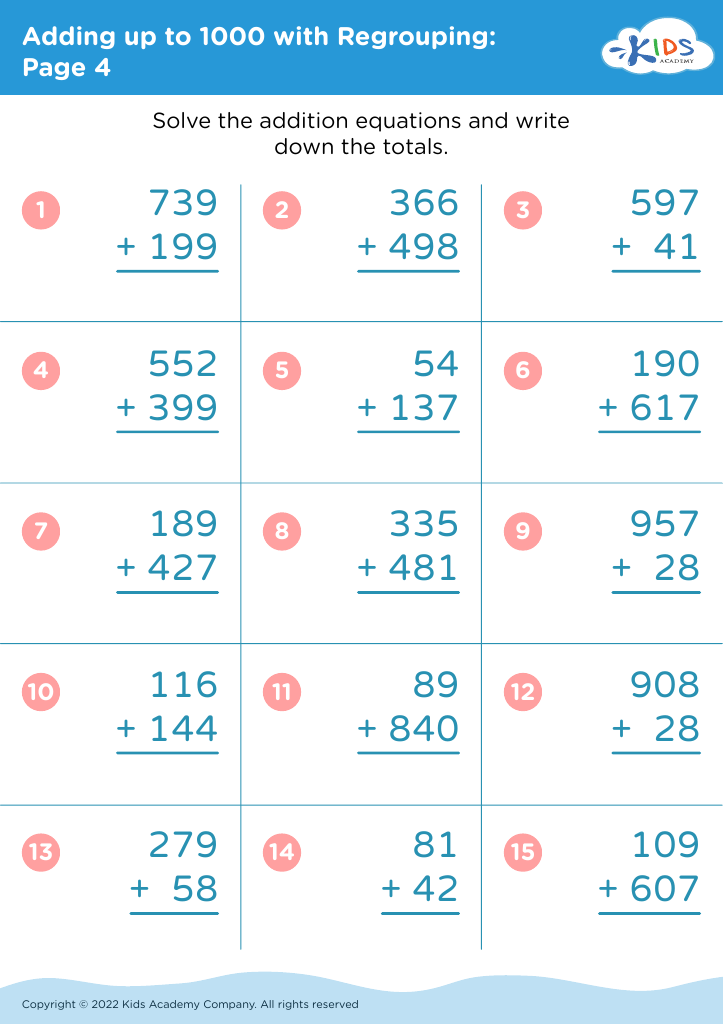Fraction comparison Adding up to 1000 with Regrouping Worksheets for 7-Year-Olds
3 filtered results
-
From - To
Introducing our engaging "Fraction Comparison: Adding up to 1000 with Regrouping Worksheets," designed specifically for 7-year-olds! These interactive worksheets provide a fun way for young learners to explore and master fraction comparisons while enhancing their addition skills with regrouping. Each worksheet features colorful illustrations and age-appropriate exercises that grab kids' attention and make learning enjoyable. By working through these activities, children will develop critical math skills necessary for their academic success, building confidence along the way. Perfect for classroom or at-home practice, our worksheets help transform math into an exciting adventure for your little ones! Get started today!
Parents and teachers should care about teaching 7-year-olds how to compare fractions and perform addition with regrouping because these skills form foundational concepts crucial for future learning in mathematics. At this age, children are developing their mathematical reasoning, and understanding fractions paves the way for more advanced topics like ratios, proportions, and complex problem-solving.
Comparing fractions helps children grasp how different parts relate to a whole, fostering critical thinking and decision-making. For instance, recognizing which of two fractions is greater enables them to tackle real-life situations involving sharing or dividing resources fairly.
Furthermore, mastery of addition with regrouping equips children with necessary skills to handle larger numbers effectively. This ability not only enhances their arithmetic proficiency but also builds their confidence and persistence in solving mathematical problems.
Emphasizing these concepts in a fun and engaging way also ignites children's interest in math, encouraging a positive attitude towards the subject. By nurturing these essential skills early on, parents and teachers are setting students on a path to success in mathematics and beyond, preparing them to tackle more complex concepts as they advance in their education.














